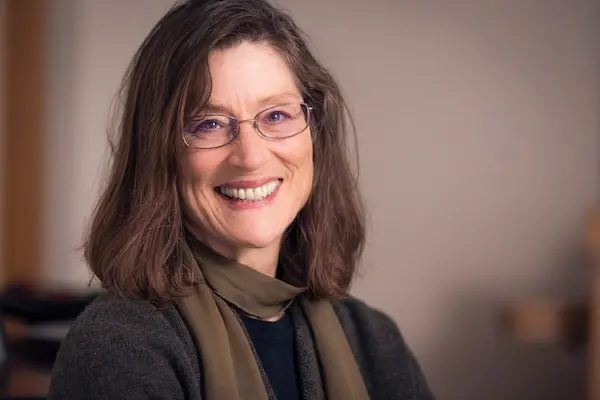$2.48 Million Grant to Help Reduce Risks in Rapidly Changing Field

02/05/2020
Contacts for media: Christine Gillette, 978-934-2209 or Christine_Gillette@uml.edu and Nancy Cicco, 978-934-4944 or Nancy_Cicco@uml.edu
LOWELL, Mass. – A UMass Lowell researcher has been awarded a $2.48 million grant to develop advances in safety for home care aides and clients that will keep pace with an aging population, advances in technology and other factors that are rapidly changing the field.
The field of home care includes the delivery of health care at home and the provision of support services to people over age 65 and those with disabilities so they may stay in their homes rather than entering a nursing home, said Prof. Margaret Quinn, who leads the UMass Lowell Safe Home Care Project and received the grant from the National Institute for Occupational Safety and Health (NIOSH).
The new grant will allow the Safe Home Care team of faculty, students and staff to take on the latest challenges facing home care aides and clients, building on 15 years of research in partnership with industry, government and community groups across Massachusetts and the U.S.
Those challenges include an aging population – the number of Americans age 65 and older is expected to reach 78 million in the next 15 years, exceeding those 18 years old and younger, according to the U.S. Census Bureau – that translates into more people facing multiple chronic illnesses, including cancer, dementia, diabetes and lung and heart disease. Managing these conditions requires increasing complex medical and assistive care, further complicated if a client also has limited mobility, such as from arthritis or obesity, Quinn said, adding that most Americans want to receive care at home.
Assisted by advances in technology, health care is shifting to the home environment and home care aides’ jobs now resemble those of counterparts in nursing homes and as new safety challenges arise, providers are seeking innovative ways to keep up.
These factors are exacerbating an already critical shortage of workers in this field, making it difficult to recruit and retain aides, and contributing to high workforce-development costs.
“Our research shows that home care aides report a high level of job satisfaction and get great reward from helping people age in place in their homes with dignity. Yet we’ve also found a number of safety hazards that make the job conditions challenging for aides. If an aide gets hurt she can lose time from work and can’t always make it back for the next visit; this is hard on the aide and on the client and their families. It’s also hard on home care agency employers, who are increasingly faced with employee shortages and turnover,” said Quinn, a professor of public health in UMass Lowell’s Zuckerberg College of Health Sciences.
Improving health and safety has been shown to be a significant factor in workforce recruitment and retention in other areas of the health-care industry, according to Quinn. The latest research by the Safe Home Care Project is looking at safety for aides and the clients they serve.
“While our studies have focused on the safety and health of aides, we’ve found many home care hazards that put clients and families at risk as well, such as fire and fall hazards, unhealthy indoor air quality and infection hazards,” said Quinn. “In this new study, we will bring together home care employers and aides, as well as clients and families, to try out ways to improve safety. It’s about going forward and finding solutions that work for all parties in home care.”
The goals of the project include:
- Producing guidelines, including a booklet, on safe practices for clients and families on how to prepare where they live for safe home care;
- Developing safety tools and techniques that can be introduced to clients when they are assessed for home care visits to identify factors that can be addressed to avoid potential problems, from preventing falls and infection to safe disposal of syringes and other sharps;
- Evaluating whether the tools introduced are beneficial to aides, clients and home care partners.
To help with the research, Quinn and her team are looking to elder and social services, workers and home care agencies across the region, including those that have partnered with the Safe Home Care Project on past efforts.
“Tandem Care Associates became involved with the Safe Home Care Project when we discovered that our missions are very similar. Our main goal is to provide a healthy and safe work environment for our aides, which leads to better client care and outcomes,” said John Carroll, co-founder of Acton-based Tandem Care Associates, which hosted a focus group for the research project. “We look forward to the results of the study, which will help bring light to the critical issues facing our aides.”
“Participation in focus groups facilitated by the Safe Home Care Project team has given our employees the opportunity to allow their collective voice to be heard and empowered them to play a role in raising awareness and education while setting a higher standard for safer delivery of home health-care services. Delivering the highest standards of service, while being supported by research reinforcing the best practices or improving our practices based on the research, has been a positive result of our years of collaboration,” said Amy Tobin, executive director of Southeastern Massachusetts Home Health Aides.
More information about the UMass Lowell Safe Home Care Project can be found here.
UMass Lowell is a national research university located on a high-energy campus in the heart of a global community. The university offers its more than 18,000 students bachelor’s, master’s and doctoral degrees in business, education, engineering, fine arts, health, humanities, sciences and social sciences. UMass Lowell delivers high-quality educational programs, vigorous hands-on learning and personal attention from leading faculty and staff, all of which prepare graduates to be leaders in their communities and around the globe. www.uml.edu
